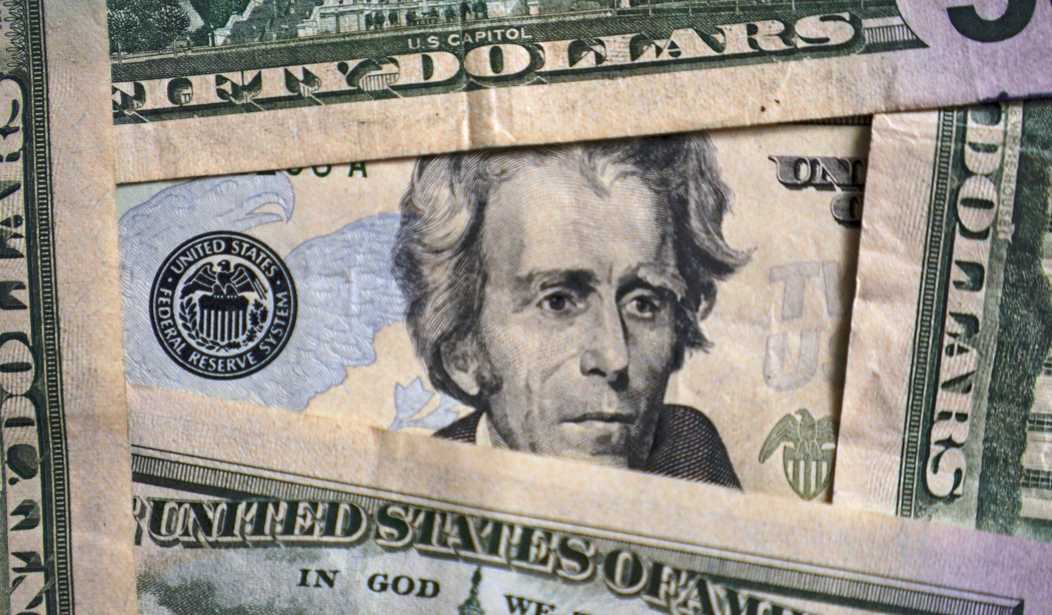Many media outlets are still denying the recession that's plaguing the American people. The source they're using to back up this denial reveals a lot about their reluctance to call it what it is.
Recession deniers are by-and-large backing up their claims with information — or rather, a lack of information — from the National Bureau of Economic Research, a nonprofit that says it "facilitates cutting-edge investigation and analysis of major economic issues." Many say the NBER is the final authority on whether the country is in a recession. As of now, the Bureau hasn't said we are. The Wall Street Journal called the NBER the "official arbiter" of recession data (via WSJ):
U.S. gross domestic product fell by an inflation and seasonally adjusted annual rate of 0.9% in the second quarter, the Commerce Department said Thursday. It was the economy’s second-consecutive quarterly contraction, which is one definition of recession, though not the one used by the official arbiter, the National Bureau of Economic Research.
Other outlets like CNN and The Hill are making similar claims. So is the White House. Back in the 1960s, the Commerce Department started referencing the work of the NBER and thus gave it some credibility, which is likely a large part of why their word is taking such a strong hold in the media and the White House.
However, many economists trust the business cycle measurement methods the NBER developed for one reason explained to Bloomberg News by a Rutgers University economic historian (via Bloomberg):
One of the reasons they were so respected is that they were totally independent of government.
If that was the case earlier in the Bureau’s history, it's not anymore. For one, the NBER receives grants and funding from multiple alphabet soup government agencies, including the Social Security Administration, the National Institutes of Health, and the Agency for Healthcare Research and Equality. For another, several high ranking leaders at the NBER worked for former President Barack Obama's campaign or administration and many more have worked for other political offices and campaigns.
Recommended
Peter Blair Henry, the NBER's vice chair, was head of the external economics advisory group for President Obama's presidential campaign. Mohamed El-Erian, a director at large of the NBER, was the chair of Obama's global development council. Another director at large, Diana Farrell, was the White House's deputy director of the National Economic Council during the Obama administration as well as the deputy assistant to the President on economic policy. Karen Mills, a director at large, was in Obama's cabinet as the administrator of the U.S. Small Business Administration and was a member of the national economic council during the Obama administration.
Mark Weinberger, another director at large, has worked on four different presidential administrations. He was assistant secretary of the U.S. Department of the Treasury under former President George W. Bush and was selected by President Bill Clinton to be on the U.S. Social Security Administration Advisory Board. Under Obama, he was on the infrastructure task force and under President Donald Trump, he served on the strategic and policy forum.
There are eight people in the elite group of NBER economists called the Business Cycle Dating Committee that the media and the White House have decided are the final word on the status of the economy. The eight are selected by the president of the NBER: James Poterba, an economist at MIT who is himself a member of the committee. The other members are Robert Hall of Stanford University, Robert J. Gordon of Northwestern University, Valerie Ramey of University of California San Diego, Christina Romer of University of California Berkeley, David Romer of University of California Berkeley, James Stock of Harvard University, and Mark W. Watson of Princeton University.
Multiple committee members also have affiliations with political offices. Gordon is an economic adviser to the Bureau of Economic Analysis. Ramey is on the Panel of Economic Advisers for the Congressional Budget Office. Stock is the "Vice Provost for Climate and Sustainability" at Harvard and was a member of former President Barack Obama's Council of Economic Advisers.
These eight, many of whom have ties to current and former presidential administrations, are trusted by the media and the White House to make the final call on whether we're experiencing a recession. Even beyond the political affiliations that should jeopardize their credibility as a "nonpartisan" body, the NBER's method of identifying recessions is not at all helpful for the average American.
The NBER defines a recession as "a significant decline in economic activity that is spread across the economy and that lasts more than a few months." For the Bureau to call something a recession, it needs to meet all the criteria of this definition. The consequence of this stringency is that the Bureau doesn’t identify most economic contractions as recessions until quite a bit after the recession has already begun.
For example, the last recession the NBER's Business Cycle Dating Committee reported was the COVID-19 recession. They first reported the recession in June 2020 and announced its end in July 2021. They later determined the actual recession lasted from February to April 2020. By the time they announced the start of the recession, it was already over. In other words, they provided no helpful information for the American people during their time of economic distress.
The COVID-19 recession was the shortest the U.S. has ever experienced. Other than that, virtually every other recession retroactively recognized by the NBER has adhered to the common definition of a recession as two consecutive fiscal quarters of negative growth.

























Join the conversation as a VIP Member